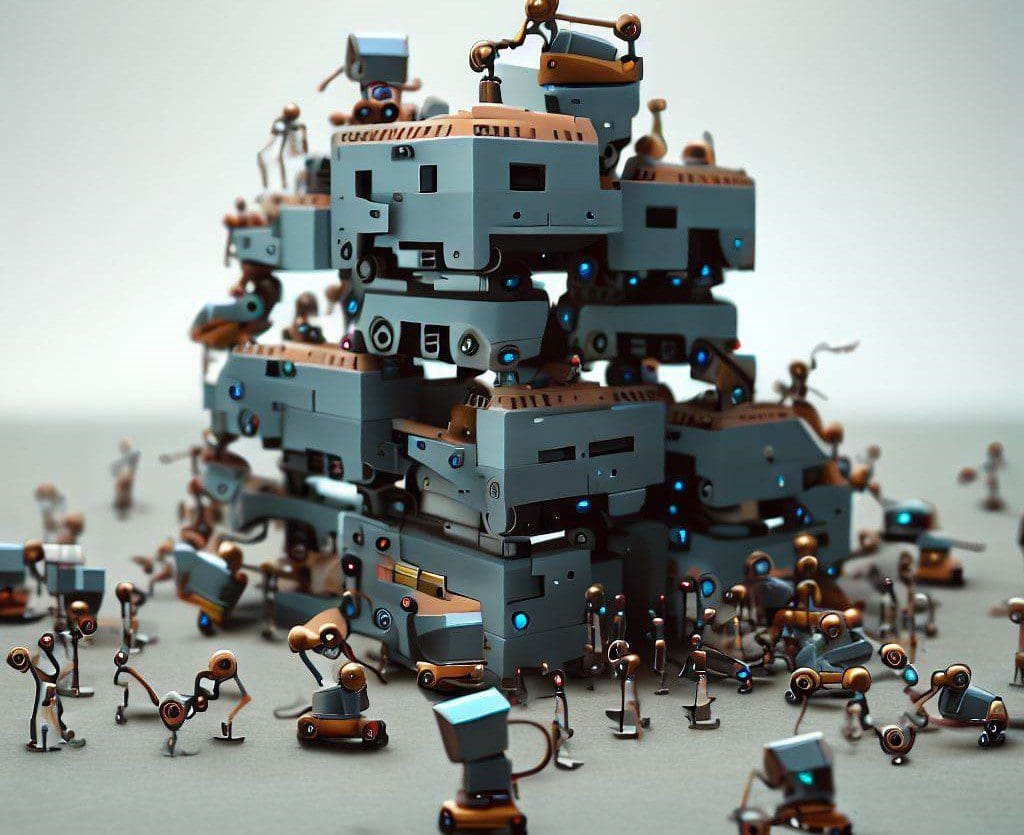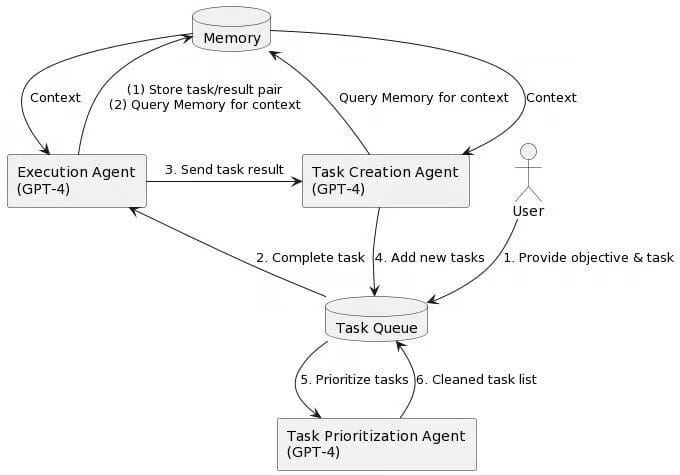Why You Need To Know About Autonomous AI Agents
A beginner's guide to understanding autonomous AI agents and their importance.

Image by Bing Image Creator
Let’s start with the obvious - AI. Artificial Intelligence is the ability of a computer to perform tasks that are usually done by humans, using data, machine learning, and more. You can use AI to create content, answer questions, and generate life-like art.
But with a lot of these AI systems, you will need to instruct them on what to do. But what if you don’t want to come up with instructions, and you want your AI system to essentially be able to think for itself?
Well you can, with Autonomous AI Agents.
What are Autonomous AI Agents?
Autonomous Agents are powered by AI, and when given an objective they can create, prioritize and complete tasks by themselves. It is achieved by self-directed instructions which run on a loop to produce actions at each iteration.
You can use autonomous AI agents to manage your social media account, create a to-do list for work, or even write a book. They are currently the hottest topic, and people want to know more about it. They are growing at a fast rate, and we should expect more to be released soon.
Sounds crazy right? But with just giving one objective, the autonomous AI agent can do the rest for you. It’s another employee, teammate or even a friend.
We have already seen some autonomous AI agents, such as AutoGPT and BabyAGI.
Is this the beginning of Artificial General Intelligence (AGI), when a computer program can perform any intellectual task at the same ability as a human?
What Can Autonomous AI Agents Do?
As long as they are given an objective, autonomous AI agents can complete any digital task, such as:
- Content creation
- Personal assistant
- Personal finance management
- Research and data analysis
- Access to Large language models (LLM) tools such as GPT
- Accessing the web,
- and more.
How Do Autonomous AI Agents Work?
Autonomous AI agents are continuing to get more popular, and more people have a growing interest in understanding the framework of how these AI agents are built. So what are the main elements that are required for a successful autonomous AI agent?
Knowledge
An AI systems knowledge base is very important. Not only will they have to have gold-standard knowledge of their training data, but also be able to gather and interpret data from a variety of sources.
Memory
Like us humans, it’s good to have the resources and learn about them - but can you remember it? An autonomous AI agent will need the capability to not only learn about new data, but they will also need to be able to recall past experiences.
Learning
So you have the knowledge and memory, but are you really learning what you need to learn?
Autonomous AI agents use techniques such as reinforcement learning - a type of machine learning concerning the training of models and their ability to produce a sequence of decisions, to maximize the notion of cumulative reward. Using reinforcement learning allows models to improve by providing feedback, refining strategies, and producing successful outputs through trial and error.
Another way to improve the learning of autonomous AI agents is by communicating with other systems, and users to provide an exchange of information and collaboration. Browsing external sources such as databases also enhances the learning process by providing knowledge resources to help the autonomous AI agent in the decision-making process.
Decision Making
When you have a good knowledge base and memory, it helps in your decision-making process. For autonomous AI agents, decision-making requires the system to analyze data, go through their memory, weigh out the different options and select the most suitable action for the user's goal.
Another element to take into consideration is that autonomous AI agents may be prompted to develop detailed action plans which require a lot of planning - which is vital before they execute their decision-making process.
To better understand the framework of autonomous AI agents, let’s break down the image below:

Image by Yohei (Creator of Baby AGI)
The system image above is broken into 6 steps, which run on an infinite loop:
- The use provides an objective/task.
- This then goes to the task queue which then moves over to the ‘Execution Agent’ to be stored in the ‘Memory’. The objective/task is now stored in the memory.
- The objective/task then adds context (recalls past experiences and knowledge base) before it is sent to the ‘Execution Agent’ which sends the task result to the ‘Task Creation Agent’.
- The task has now been created and added to the ‘Task Queue’.
- The task will then have to go through the ‘Task Prioritization Agent’ to get prioritized amongst other tasks.
- The last step is the agent cleaning up the task list during the ‘Task Prioritization Agent’ phase.
Why Are Autonomous Agents Important?
A few months ago, ChatGPT was released and we’re seeing a lot of people take to it. Companies are adopting it and looking at new ways to integrate it into their operations. Developers are going crazy with the plugins. It is showing that AI systems are becoming an integral part of the ecosystem.
For some, this may seem like a momentary thing. However, the technology world is receiving high investment and is growing at a rapid rate to keep the momentum going. The advancements and implementations of artificial intelligence in our everyday lives are much closer than we think.
We live in a fast-paced digital landscape, where autonomous AI agents have the potential to improve productivity and operations across different industries. This will allow businesses to operate more efficiently, whilst still being able to remain competitive.
Autonomous AI agents aren’t like humans. They don’t need sleep, a lunch break, etc. They can program 24/7 to ensure effective production, faster results, and reduce tedious task workloads of current employees.
Companies will start to see a cut in labour costs, a boost of productivity in both employees and efficient strategies. However, we understand that an increase in autonomous AI agents will create job displacements in industries that involve heavy repetitive tasks such as manufacturing.
You will naturally see jobs that involve creativity, advanced problem-solving, and innovative thinking increase in demand. As well as roles such as data analysis, data ethics, and AI system monitoring which will be required to monitor AI-based systems.
Wrapping it up
It is no longer a question of whether autonomous AI agents will be adopted into organizations, it is happening. It's a matter of understanding when it will happen in full effect.
So what will you be doing?
- Looking into creating autonomous agents which others can hire?
- Or hiring autonomous agents to improve productivity and personal life?
I hope this article has taught you a thing or two about what you expect from autonomous AI agents and how they will shape our future. If you have found any interesting news about autonomous AI agents, drop a comment below!
Nisha Arya is a Data Scientist, Freelance Technical Writer and Community Manager at KDnuggets. She is particularly interested in providing Data Science career advice or tutorials and theory based knowledge around Data Science. She also wishes to explore the different ways Artificial Intelligence is/can benefit the longevity of human life. A keen learner, seeking to broaden her tech knowledge and writing skills, whilst helping guide others.
